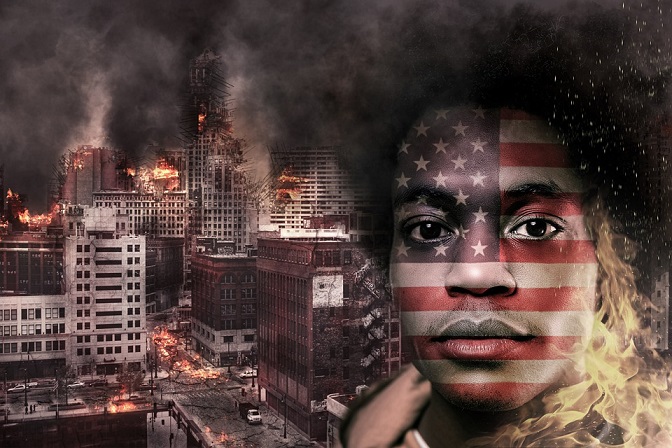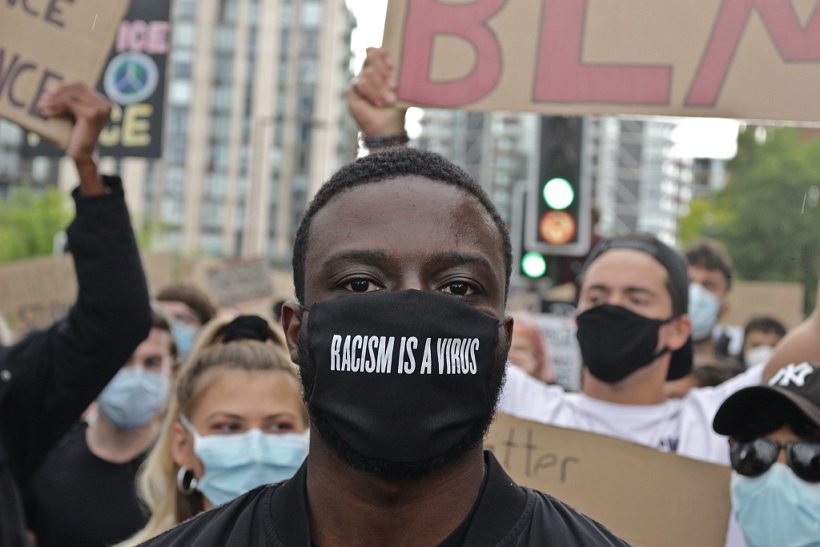Despite progressive electoral success, right-wing ideology is gaining a foothold. And the masses are voting for it. The people are going to the ballot box to elect their executioners. The story is the same across Europe, where far-right positions are gaining ground – often with neo-Nazi undertones – seemingly accepted by the majority.

Marcelo Colussi
Did the fall of true socialism pave the way for this ultra-right revival? Must we take up our socialist banners again to avoid fascism? Now the right is aiming for more, its authoritarian discourse intended to shut down the merest suggestion of emancipation or liberation. This change in the dominant ideologies would have once seemed impossible. It is not the result of “natural” ebbs and flows. Nor is it rooted in a mass spontaneous conservative reaction to recent changes. It is the finely crafted product of the powers that be, who have orchestrated this generalised swerve to the right. Nobody is born a “nazi”, anti-abortion or homophobic; it is something that is constructed.
The socialist agenda has stalled, and conservative discourse is becoming increasingly mainstream.
The anti-systemic, anti-capitalist positions that characterised a large part of the nineteenth and twentieth centuries, and led to profound social struggles that brought clear gains (improved working conditions, including the eight-hour working day, prohibition of child labour, health and retirement provision) – and in some countries socialist revolutions and significant social advances for the masses – today seem to be fading away.
This does not mean that we have entered a paradise, free from contradictions or injustices to stand against. Curiously, the significant inequalities that continue to shape global social dynamics and stir up reactions seem insufficient to bring about sustainable transformations. Yes, there are protests the world over, but the system knows how to absorb them.
 Che Guevara, the symbol of socialist revolution, was reduced to a “cute face” to be printed on a T-shirt, watering down the significance of his militancy and ethical message. The right definitely knows how to win “hearts and minds”, as Zbigniew Brzezinski, US neoconservative and creator of the ultraconservative Santa Fe documents, used to demand.
Che Guevara, the symbol of socialist revolution, was reduced to a “cute face” to be printed on a T-shirt, watering down the significance of his militancy and ethical message. The right definitely knows how to win “hearts and minds”, as Zbigniew Brzezinski, US neoconservative and creator of the ultraconservative Santa Fe documents, used to demand.
Not only does profound transformation seem distant, but the system itself allows certain cosmetic changes that create the illusion of “social progress” but in reality, change nothing of substance. In any case, we are currently witnessing a widespread process in which anti-change thinking (against changes of any kind) is going from strength to strength. Positions are becoming entrenched, and instead of looking towards the twenty-second century (for which China already has projects planned), all signs point towards a return to the European Middle Ages, characterised by the Inquisition and hyper-conservative positions. Fundamentalism is not dead.
The world undoubtedly remains at boiling point. Immediately before the start of the Covid-19 pandemic in 2019, global unrest had erupted into popular demonstrations.
Protests were bubbling up in all four corners of the globe: Latin America, Europe, the Middle East, the United States. Coronavirus came to quell the storm. Strangely, taken to the political level, this malaise is not being reflected in the governments that emerge from the popular vote. Incredibly, despite so much accumulated discontent, the right is victorious. And when they do not triumph at the polls (Bolsonaro in Brazil, Marie Le Pen in France), they receive an enormous number of votes at the elections held as part of this farce we call “democracy”.
It is far-fetched to say that candidates with centre-left, progressive, social and popular leanings represent a radical advance of left-wing perspectives.
 Latin America experienced the first wave of such administrations at the turn of the century (Hugo Chávez in Venezuela, Lula and Dilma Roussef in Brazil, Néstor Kirchner and then Cristina Fernández in Argentina, Evo Morales in Bolivia, Rafael Correa in Ecuador, Pepe Mujica in Uruguay). Yet structurally, nothing changed. Nothing changed and nothing will be able to change because these approaches are confined to the capitalist framework, despite certain improvements, which are definitely important for the population.
Latin America experienced the first wave of such administrations at the turn of the century (Hugo Chávez in Venezuela, Lula and Dilma Roussef in Brazil, Néstor Kirchner and then Cristina Fernández in Argentina, Evo Morales in Bolivia, Rafael Correa in Ecuador, Pepe Mujica in Uruguay). Yet structurally, nothing changed. Nothing changed and nothing will be able to change because these approaches are confined to the capitalist framework, despite certain improvements, which are definitely important for the population.
The current second wave (Manuel López Obrador in Mexico, Luis Arce in Bolivia, Gustavo Petro in Colombia, Gabriel Boric in Chile, Alberto Fernández in Argentina, Lula again in Brazil, Pedro Castillo in Peru, Xiomara Castro in Honduras) does not promise to go any further either.
Put simply: the so-called “democratic” West does not appear to be so democratic. Although “regimes” that challenge the hegemony of white, blonde capitalism are labelled “authoritarian” (Russia, China, Iran, Cuba and Venezuela are speaking out in their own way) authoritarianism is on the rise in this part of the planet, displacing even liberal right-wing positions. There are more than enough examples: despite Latin America’s new centre-left leaders (which may lead one to believe, as the capitalist press says, that the sub-continent is “turning red”), the ultra-reactionary right is still hard at work and growing. In Mexico, the Political Conference of Conservative Action, a gathering of powerful hyper-reactionary decision-makers, is meeting in a clear show of force against the “communist” López Obrador. Fundamentalist positions are growing. For various reasons, all driven by the same terrible fear of change, obscurantist forces that bring out the worst and most reactionary in societies (it has been said that “we all have a fascist dwarf inside us”) are enabling conservative positions to flourish: xenophobic horror at “invading” foreigners in Europe or the United States, patriarchal misogyny and visceral anti-communism in Latin America (mobilised to a large extent by the mega-conservative neo-evangelical churches). The truth is that the right is growing.
It is this population that voted for ultra-reactionary candidates, such as Mauricio Macri in Argentina, Jair Bolsonaro in Brazil, Sebastián Piñera in Chile, Iván Duque in Colombia, or Giorgia Meloni in Italy (a direct descendant of the Duce), or that gives neo-Nazi legislators the green light in numerous European countries, including former social democratic havens, such as the Nordic states.

Conservative thinking is asserting itself with increasing force, attempting to leave left-wing approaches behind. Marx is condemned to oblivion, and – for the dominant discourse that sets the tone – class struggle is seen as a hangover from the past. “Left and right no longer exist”, they say. They want to convert us workers into “collaborators”, and anti-progressive sentiments are everywhere, sometimes with neo-fascist overtones.
What is worrying is the rise of this conservative, racist, patriarchal and, in some cases, xenophobic discourse that demeans anything considered different from “normal” (and here anything can be included) and is extremely violent and anti-democratic. It is spreading globally, with different characteristics but always with a common denominator. It is no longer a hallmark of the middle- and upper-classes, or of the elites, but has even permeated the working classes.
These neo-fascist politicians spout a populist discourse that is even more attractive than that of the left. The spectre of corruption (which, by the way, also exists in progressive governments) acts as a catalyst for moralising discourses, which the right knows how to exploit.
Unlike decades ago, in the 1960s and 1970s, when opposition perspectives in the broadest sense were gaining ground, today, the system has done an excellent job of calling everything that is “progressive” into question.
 The system can tolerate certain expressions of change, but not much else. And even these advances (gender ideology, criticism of racism, acceptance of sexual differences, a discourse of a certain ethical openness) are now being challenged. The furious project of the knuckle-dragging right wing is trying to sweep everything away, branding liberal right-wing positions as “weak”.
The system can tolerate certain expressions of change, but not much else. And even these advances (gender ideology, criticism of racism, acceptance of sexual differences, a discourse of a certain ethical openness) are now being challenged. The furious project of the knuckle-dragging right wing is trying to sweep everything away, branding liberal right-wing positions as “weak”.
We see that different expressions of conservative thought pervade Latin America, despite moderate leftist governments. In Chile, after strong popular uprisings, the population voted against the new Constitution that promised change. In Brazil, Lula won by a very slim margin (and bolsonarismo and its neo-fascist message is growing). In Peru and Bolivia, the governments are constantly under pressure, even pushed to the brink. Anti-abortion, homophobic and racist positions are gaining ground.
It is no longer the spectre of communism but a neo-Nazi spirit that is sweeping Europe; only five countries have governments free of far-right parties: Ireland, Malta, Luxembourg, Croatia and Romania. Leaders who raise fascist banners from past decades (god, country, family) are triumphing with popular support.
In the United States, Trump’s xenophobic right is flourishing and could regain the presidency; neoconservative discourse is gaining ground, with racist and violent messages.
(Translated by Rebecca Ndhlovu – Email: rebeccandhlovu@hotmail.co.uk) – Photos: Pixabay












.jpg)












